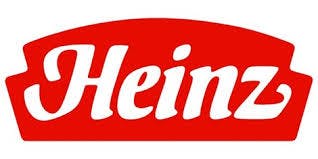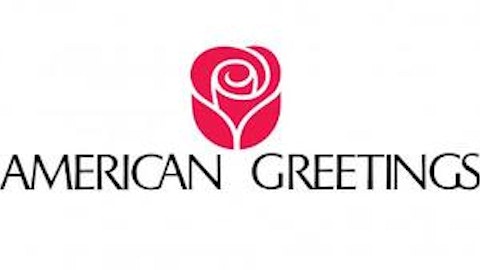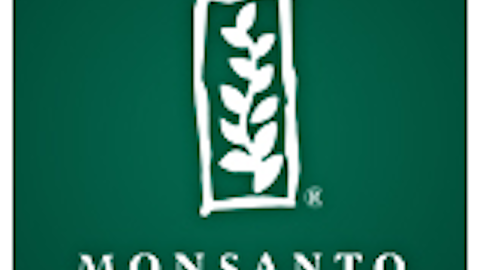The Oracle of Omaha is again showing that he’s got a taste for companies that make the kinds of food many Americans love.
Billionaire investor Warren Buffett is dipping into the ketchup business as part of $23.3 billion deal to buy the Heinz ketchup company.
Warren Buffett’s Berkshire Hathaway Inc. (NYSE:BRK.A) is joining with the Brazilian investment group 3G Capital to buy H.J. Heinz Company (NYSE:HNZ). for $23.3 billion. Add in the debt that the new owners will assume and the deal’s value grows to $28 billion, Buffett’s company said. Berkshire Hathaway already owns Dairy Queen, and 3G Capital bought Burger King in 2010. Now they’ll have plenty of ketchup for those chains, to be sure. They also add Heinz’s T.G.I. Friday’s to their restaurant holdings.
The deal, said to be the largest ever in the food industry, pays Heinz shareholders $72.50 in cash for each share. The company, based in Pittsburgh, also makes Classico spaghetti sauces, Ore-Ida potatoes and Smart Ones frozen meals. Heinz CEO William Johnson said in a statement that the company “will have an opportunity to drive further growth” as a private enterprise.
Buffett, 82, has been seeking deals after the cash pile at Nebraska-based Berkshire climbed to more than $45 billion. He has previously wagered on consumer products through equity investments in The Coca-Cola Company (NYSE:KO) and he helped finance Mars Inc.’s purchase of chewing gum maker Wm. Wrigley Jr. Co. Brazil’s Lemann, 73, is worth about $19 billion based on holdings in Anheuser-Busch InBev NV (ADR) (NYSE:BUD) and Burger King Worldwide Inc., according to the Bloomberg Billionaires Index. In many ways, Heinz fits Mr. Buffett’s deal criteria almost to a T. It has broad brand recognition – besides ketchup, it owns Ore-Ida and Lea & Perrins Worcestershire sauce – and has performed well. Over the last 12 months, its stock has risen nearly 17 percent.
Why Heinz?
Heinz benefits from very powerful consumer goodwill in the developed markets and a very early start in China and India, two of the largest developing markets in the world. In November Heinz said fiscal second-quarter sales in emerging markets rose 13%, excluding the effects of foreign currency fluctuations and acquisitions or divestitures.
In paying $28 billion for H.J. Heinz, Berkshire Hathaway and 3G Capital are buying more than an iconic brand like Heinz Ketchup. That’s because H.J. Heinz arguably has a stronger foothold than other brand-name U.S. food makers in emerging-market economies around the world.
In recent years, big U.S. food makers have been seeking growth outside the U.S. in a bid to capture new customers, who can now afford to spend more money on food. It’s a chief reason Kraft Foods Group Inc (NASDAQ:KRFT) split into two companies last fall. Heinz got 21% of its total company sales from emerging markets last year and is projecting 25% for its 2013 fiscal year that ends this May. Heinz expects “double-digit” growth from sales of its ketchups, sauces and frozen foods in countries like Brazil, China, and Russia. Such growth comes from a buy and build acquisition strategy Heinz embarked on 15 years ago. By 2018 at the latest, Heinz is betting its emerging markets business will produce annual sales of $5 billion, double of what it is today.
Last year, Heinz says it had sales of $11.6 billion, with ketchup and sauces accounting for just under half of that. Given the saturated North American market, the company has increasingly looked overseas for growth. In 2010, for example, the company bought Foodstar, which makes Master brand soy sauce and fermented bean curd in China. Heinz expects emerging markets to account for a quarter of the company’s sales.
Is it an expensive deal?
The deal is the largest ever in the food industry. At a purchase price of $72.50 per share, the buyers are paying about 14.6x trailing EBITDA. That compares with the median of 7.6 times EBITDA in a survey of more than 100 comparable deals worldwide. The deal seems pricy as compared to its peers, including ConAgra Foods, Inc. (NYSE:CAG) and Nestle SA Reg Shs. Ser. B Spons (ADR) (PINK:NSRGY).
Why not buy into other steady goers in the food business like Kraft or ConAgra or Nestle?
In the world of staple products, Kraft has proven too risky for Buffett’s taste. He chastised the company for buying Cadbury in 2010. To free up cash for the purchase, Kraft sold its frozen-pizza business (DiGiorno, Tombstone and Jack’s pizza) to Nestle. Frozen pizzas were a big winner during the recession, but Kraft wanted a bigger piece of fast-growing emerging markets, where Cadbury is a big player. Kraft has since split into two separate businesses, a move that shook investors, and Buffett has sold a big chunk of his holdings in the company.
ConAgra Foods is another relatively risky grower. ConAgra Foods, with the trading price of $33.70 per share, is worth nearly $13.7 billion on the market. The market is valuing ConAgra at 11.45x EV/EBITDA. The company’s $6.8 billion cash purchase of private-label company Ralcorp Holdings, Inc. (NYSE:RAH) in November for around $90 per share is a big bet on the growth of private-label products globally. The deal values Ralcorp at around 11x EV/EBITDA.
Among the three, Nestle is the biggest company with a $218.5 billion market cap. It is valued at around 13.5x EV/EBITDA. However, the Heinz deal is not as expensive as the Nestle/Pfizer Inc. (NYSE:PFE)’s baby food deal. In April 2012, Nestle purchased Pfizer Nutrition, a baby food business from Pfizer for around $11.85 billion, or nearly 20 times EBITDA. Thus, the ConAgra/Ralcorp deal seems to be the cheapest.
Foolish Bottom Line
“It’s my kind of deal and it’s my kind of partner,” Warrent Buffet said.
Heinz has dabbled in its own riskier plays in the past—for instance, buying into pet food (9 Lives and Kibbles ‘n Bits) and canned tuna (StarKist), businesses it later sold to Del Monte. But recently, the iconic global brand has come back to what it does best: earning a hefty premium for mixing vinegar with tomatoes. With a 14.6x EBITDA, I think Heinz is a fair deal.
There may be some wizardry in the Heinz recipe, but not in its corporate strategy. And that’s magic enough for a wizard with simple tastes!
The article Heinz Is In Warren’s Pantry originally appeared on Fool.com and is written by aakanksha patodia.
Copyright © 1995 – 2013 The Motley Fool, LLC. All rights reserved. The Motley Fool has a disclosure policy.






